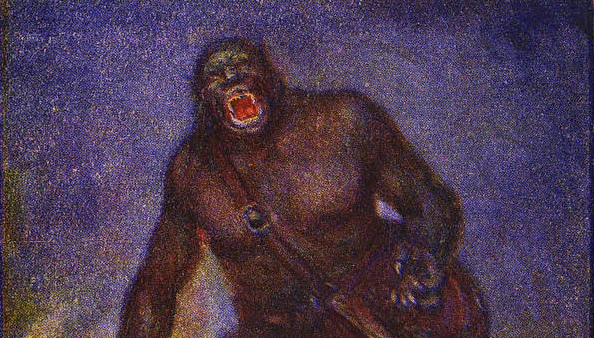Monday
A Harvard-adjacent bar called Grendel’s Den is gaining some national attention after Texas’s recent abortion law, which relies on bounty hunters for enforcement. That’s because the lawsuit that allowed Grendel’s Bar to serve liquor—so ruled the Supreme Court in 1982—may be the precedent needed to overrule the Texas law.
I of course am intrigued by the bar’s Beowulf allusion and am looking to apply it.
Apparently there used to be a Massachusetts blue law that (this according to Wikipedia) would allow “a school or a religious institution within 500 feet of a liquor license applicant to prevent the issuance.” When Grendel’s Bar wanted such a license—after all, what self-respecting Danish troll would abstain from mead—a nearby church objected. Their objection was overruled, however, first by a state court and then by the Supreme Court. After all, it’s the state’s responsibility to enforce laws. It can’t delegate that responsibility to private citizens or organizations.
According to Harvard law professor Lawrence Tribe, who successfully argued the case before the Supreme Court, the precedent should apply to Texas as well. The legislature can’t farm out enforcement of its abortion-ban-after-six-weeks to citizens bringing private lawsuits. It would have to enforce the law itself.
And the reason it can’t do that is because abortion is currently a Constitutional right thanks to Roe v. Wade. Texas thought it could circumvent that inconvenient fact by incentivizing private citizens to snitch on their neighbors, earning $10,000 a pop plus legal fees plus no legal liability. The conservative Supreme Court did not say no, but Tribe doesn’t see how it can ignore the Grendel’s Bar ruling.
From the Texas legislature’s point of view, such liberal objections are like Grendel storming its nice white male Christian party. Since its QAnon supporters already regard Democrats as cannibalistic pedophiles engaging in global child sex trafficking, why not just call them God-cursed Grendels and quote such passages as the following:
Suddenly then
The God-cursed brute was creating havoc:
Greedy and grim, he grabbed thirty men
From their resting places and rushed to his lair,
Flushed up and inflamed from the raid,
Blundering back with the butchered corpses.
“Butchered corpses” is how the Texas legislature regards aborted fetuses–even though a six–week fetus is the size of a grain of rice. So why not allow outsiders—Beowulf, after all, is a Geat, not a Dane—to come in and take down the monster. And heap lots of treasure on him after he proves successful.
The Danes win round one when Beowulf takes out Grendel. They win round two when he handles the backlash, as embodied in Grendel’s mother. But round three, which happens after Beowulf leaves and after King Hrothgar dies, will see fratricidal strive break out amongst Hrothgar’s kin. The great mead hall of Heorot will burn to the ground.
In other words, extra-legal measures once set in motion don’t solve the issue but breed ever more resistance and ever more monsters. Some of these monsters take the form of Democratic voters.
Further thought: While I spent a summer in Harvard Square in 1973, I don’t remember Grendel’s Den. I wonder if it resembles at all the underwater den described in the poem:
The gallant man
Could see he had entered some hellish turn-hole
And yet the water did not work against him
Because the hall-roofing held off
The force of the current; then he saw firelight,
A gleam and flare-up, a glimmer of brightness.


